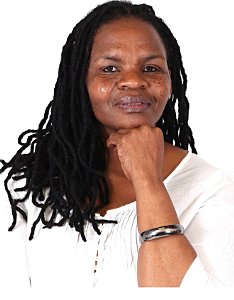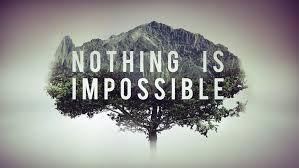 What does it take to become a lecturer in electrical engineering? And what does this career choice involve? Find below my interview with a lecturer in Electrical Engineering, who is passionate about engineering, teaching and mentorship, Dr. Ditiro Setlhaolo. She is also a consultant in demand side energy management.
What does it take to become a lecturer in electrical engineering? And what does this career choice involve? Find below my interview with a lecturer in Electrical Engineering, who is passionate about engineering, teaching and mentorship, Dr. Ditiro Setlhaolo. She is also a consultant in demand side energy management.
Question: Electrical engineering, how did you gain interest in this area?
Ditiro: This question takes me back. I grew up with interest in technical stuff, though at the time, I didn’t know whether it was electrical or mechanical engineering. I had a lot of interest in fixing things, be it kettles, iron-boxes etc. I wanted to understand how these things worked. This was completely different things from what my siblings were interested in. Before I did anything, I had to get extensive knowledge on it whereas my siblings would tease me for “thinking too much”. I just wanted things to be done in a particular manner. Later on, in my childhood, I spent some time with my grandfather at the village. He had a small transistor radio and  because of the distance from the city, we, sometimes, had challenges with signals. He would say, “take this radio and face it to Gaborone and then you will get the signal.” For some reason, in turning the radio in a certain direction, you would get the signal and listen to the radio. So I became curious about these signals, what they were and how they worked.
because of the distance from the city, we, sometimes, had challenges with signals. He would say, “take this radio and face it to Gaborone and then you will get the signal.” For some reason, in turning the radio in a certain direction, you would get the signal and listen to the radio. So I became curious about these signals, what they were and how they worked.
Question: You finally joined Electrical Engineering. How did this come about?
Ditiro: I finally got to know about the different engineering fields so that when I arrived at the University of Botswana(UB), I was sure that I wanted to do telecommunication engineering. But I switched to electrical engineering because of one of my lecturers who turned my spirit away from telecommunications engineering. In first year, another female student and I were assigned a project supervised by this lecturer. When we went for consultation, his behavior and talk alluded to his negativity to having female students in his class. I perceived that things would not go so well for us because he had a preconceived mind. If someone has formed an opinion about you without giving you a chance, it means that anything that concerns you, be it marking scripts, or project supervision, will be based on this preconception. This incident demotivated me and my interest in telecommunication engineering went down. This is when I made the change to Electrical Engineering, specifically power. I excelled in power engineering, I was still within the engineering field and was also able to understand and work with a bit of signals. I still enjoy it even today.
Question: After your undergraduate degree, what was the progression to Dr. D. Setlhaolo today?
Ditiro: I did my Masters degree at the University of Bath in UK for one year. I had a 4-year old child who I had to leave to go for my studies, which was tough. When I came back to UB, where I had been employed, I did a Master of Business Administration(MBA) as I continued working. Then I got the opportunity to do my doctorate at the University of Pretoria. At this point, I had three children. It was even harder to leave this time because I had just completed building my home, and I had to organize how I would leave my children. Going to Pretoria was a huge sacrifice. I eventually moved the children to Pretoria after the first year of study. My doctoral research was focused on optimal management of household energy, specifically focused on optimization of the demand response.
Question: What do you believe makes your career interesting?
Ditiro: My primary responsibility as a lecturer is to instill knowledge. I get very excited when I meet my students working in industry and they appreciate my work. They see the things that I taught them applied in industry and say “thank you”. This is what drives me. I feel that I am changing the lives of people. A while back, I was supervising an undergraduate project and the student did not like the project and barely passed. After working for some years, he changed jobs to ESCOM, where his responsibility was based on his undergraduate project. He sent me an email saying that ‘I had to go and look for my report, even though I barely passed but I would just like to thank you’. I was very touched. The second thing that I love about my career is that of nurturing. I believe that we are appointed in this position, not just to give information, but to parent as well. When you think about it from that perspective, you need to know your students. You may find a clever student who is not performing because of some hindrance. Talking to them and making them aware of the facts of life, allows them to grow, and soon their performance changes for the better, and you notice the “born engineer” that he/she is. I like teaching, I have realized that it is not just teaching. There is more to it than teaching. There is being concerned about people, that is why I like it so much.
Question: What are some challenges that you face as a female electrical engineer?
Ditiro: I tend to be sensitive to people with the preconception that women cannot make it in engineering, and those who believe that since you are a single parent you cannot make it. There are people who make quick and wrong judgments based on your gender and personal life, which should not be the case in the work environment. Certain duties are pushed to you since you are a woman. Recently, I was asked to take the minutes at a meeting. When I asked why they chose me, they replied “because you are a woman!” I refused to take minutes because I am an engineer first. As much as you think you are worthy of being in the lab with a spanner, I will also be there with my spanner. I do not want to be given certain jobs just because I am a woman.
Question: You talked about nurturing students in class, are there other mentorship activities that you have been a part of?
Ditiro: I am a member of the Forum for Women Engineers and Girl Scientists in Africa (WEGSA). WEGSA’s mandate is to sensitize girls in science & engineering and also women who are in engineering to really understand who they are and how to survive as a woman in the engineering environment. Before I left for my doctorate, I was the Secretary, in charge of all correspondence and coordination of the different chapters in various countries. WEGSA’s activities in Botswana were workshops, funded by both the Government of Botswana and UNESCO, mentorship programs at junior school level and children’s camps. There was also an initiative to prepare a booklet to be used by children in the lower primary level as a means of sensitization on what engineering is, the different fields, what is the expectation, where you are expected to work when you finish, just to give them some knowledge. We are currently planning some activities next year, where we are trying to bring in new partners on board such as the institutions of Engineers. I also perform mentorship of children in my life as well as spiritually. I believe that when God brings a child into my life, it is my role to mentor this child.
Question: What are the major challenges that you think girls experience that prevent the numbers of women in engineering and science from increasing?
Ditiro: As part of WEGSA activities, we would go to career events organized by the government where they invited children from around the country to listen to career talks. I was the representative for engineering. Girls would come to me after my presentation and ask me: “Does it mean I am going to wear overalls? Does it mean I am going to look greasy?” I think society does not have a clear understanding of what engineering is and the different branches of engineering. They think when you talk about engineering is grease! This perception still persists, making girls to choose other courses. I am, currently, teaching a class which has three ladies. When I asked them what motivated them to do engineering, the answers I got were “I just did because I didn’t go to do medicine” or “because my parents said I should do it”. You will find a majority of students have no interest in the course. I believe this is because of the negative perception of engineering in the society. So, apart from teaching, I try to mentor and motivate such students, to make them have a vision for the future in engineering.
Question: What other roles are you playing apart from lecturing?
Ditiro: I am currently involved in the METEGA project as well as several projects with the Clean Energy Center. I am, also, in the national committee for energy set up by the Ministry of Education. My role is to advise and bring in new ideas on how to incorporate energy in the curriculum in secondary schools. What can be covered by children of that age in energy? I am an associate editor for the Botswana Institution of Engineers Journal and I also review journal papers for several publishers such as Elsevier, IEEE, South African Journals.
 Question: What is your deepest personal belief that drives you?
Question: What is your deepest personal belief that drives you?
Ditiro: Nothing is impossible.You must believe that you can do any task placed before you. If you apply yourself to it, you can do it. It would, otherwise, not have come to you. I believe that God appoints and directs all things to you, giving you, also, the strength and wisdom to do these tasks.
Question: Where do you see yourself going in the next 10 years?
Ditiro: I am definitely looking at progression up the ladder in terms of my career at the university. Since I have completed my doctorate, I have to prepare myself to do that. But above that, I believe that God has a plan for my future.
Question: Your daughter is taking science at the university, is this because of your convincing or otherwise?
Ditiro: My daughter is and has always been a geology fanatic. She is currently doing BSc. in first year so that she can get into geology. I did not have to convince her into a science field, I actually wanted to convince her otherwise. She was very sure of what she wanted to do and was into it, so I let her be.
Question: What advice would you give girls who want to pursue engineering or to motivate young ladies aspiring to be engineers?
Ditiro: I think girls need to know they can do anything. There is no woman’s job or man’s job. What I have observed in all my years of teaching engineering is that girls pay attention to little details, which is what engineering is all about. For a system to work, you must have paid attention to the finer details to get everything to work together. Women have that natural skill. So they can do it and are able. Girls should not believe people who say that women are not clever, because I am evidence that women can reach far. I would advice them to listen to their hearts. Being fulfilled in life is doing the things that you were born to do. Do not allow people to derail you from your destiny because it means you will not be fulfilled. Some times there is a lot of peer pressure, people telling you to do business courses because in business you wear makeup. By the way, we wear makeup and heels in engineering. Bottom line is, if you can make it in maths and science, engineering is yes. As simple as that.



I am deeply encouraged.I am also an Electrical Engineer currently lecturing at The Copperbelt University.I look forward to pursuing my PhD.Thanks alot for sharing this.I guess many young girls aspiring to do Engineering need to read this…..
Thank you Benta.
Great article! Loved seeing this!
Thank you.